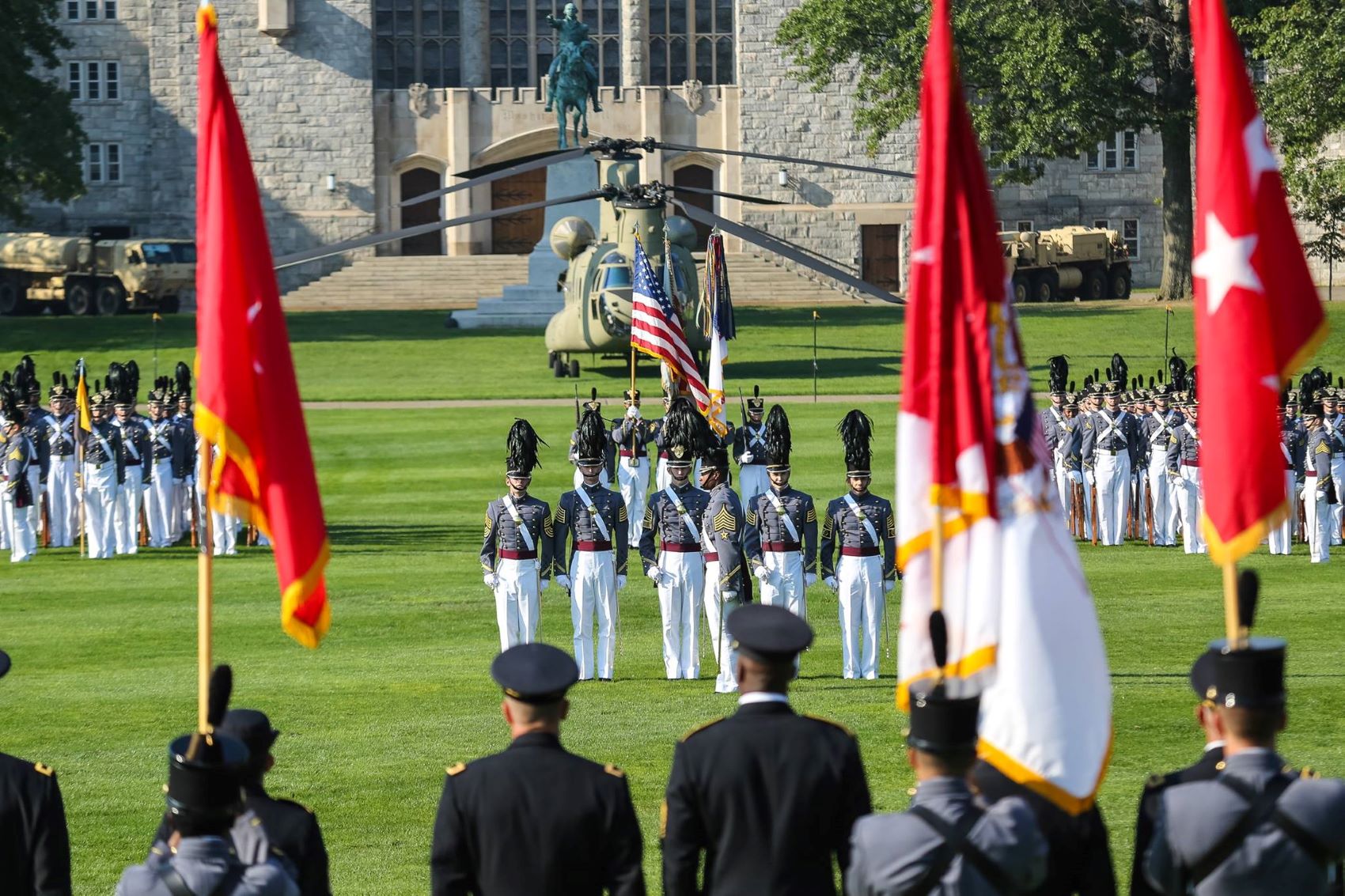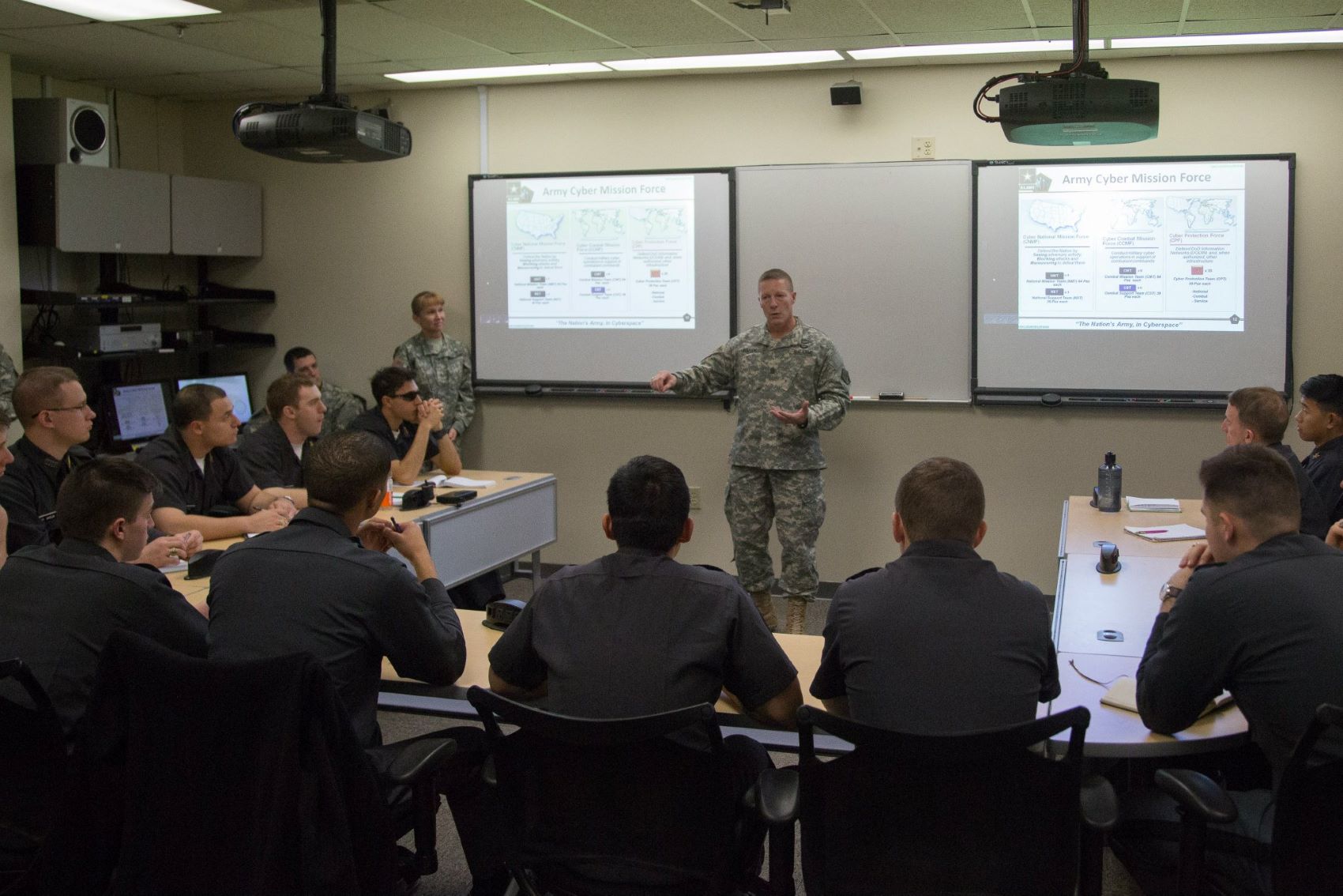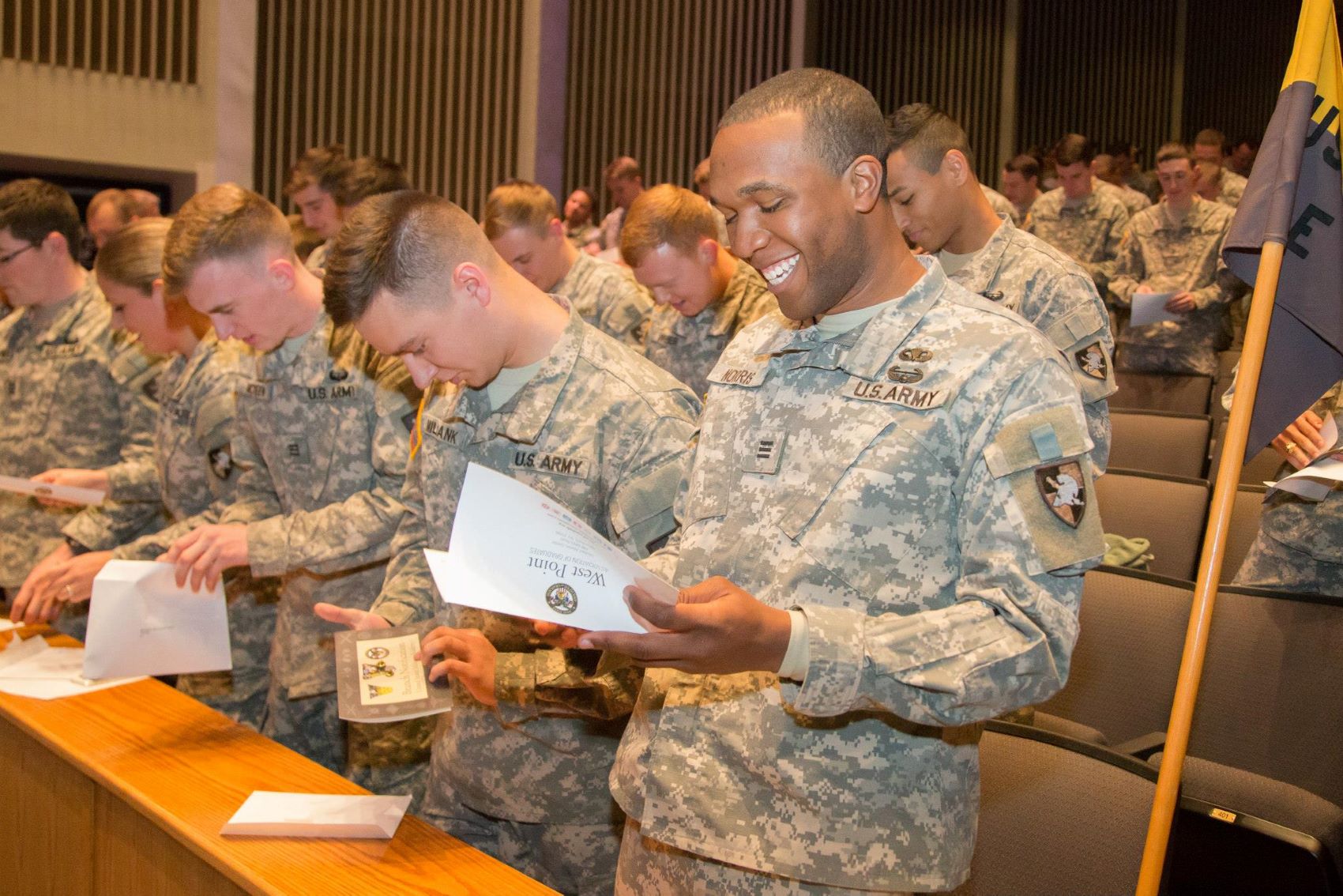Learn from West Point Grads on the Winning Leading and the Triangle Principle
In 2021, West Point celebrated the 219th anniversary of its founding. The school was created to fix a key problem in the Army that time – a lack of officers with engineering skills. Therefore, West Point has become an important American institution, establish itself as the country’s finest school of engineering and science.
Beside the fact that, American have long considered military experience an asset for country’s presidents, an opinion illustrated by the fact that more than half of them served in the armed forces.
You will also find US corporations led by CEOs with military background, and even outperformed the S&P 500 significantly over the years, according to data collected by BoardEx. With many graduates from West Point, namely Alex Gorsky of Johnson & Johnson, Steve Smith of tech firm Equinix, and Scott Rowe of oil-gas Cameron International.
A military school somehow has made it reputation raising many well-known strategist, leaders, and CEOs.
Understand the Academy system
The institute is under supervision and control of the Department of the Army, exercised through the administrator, in whom is vested the immediate military command of the academy and the military post. The goal of this program is to train cadets so that each graduate will have the qualities and attributes essential to continues development through a lifetime career as an officer in the army.
The four-year course of college-level education and training leads to a Bachelor of Science degree and a commission as second lieutenant in the army. The curriculum is balanced between mathematics and basic and engineering sciences, the humanities and social sciences, military science, and physical education.
How Is It Changing and Strategy for Innovate?
Strategies around academic continuity at West Point and how it is trying to differ from others?

On an interview with Chris Mayer an associate dean for strategy and initiatives – associate professor of philosophy at the United States Military Academy at West Point, and a colonel in the U.S Army.
Briefly sketch how West Point is thinking about the future of teaching and learning. West Point updated its curriculum five years ago and is continuing to assess its effectiveness. Mayer says the school will begin the process of reviewing in a few years. Two years ago, they formed a group called Academics 2052, which is the 250th anniversary of West Point, to help the school think about academic future at West Point.
This group do research and drafted papers on the future of war and the security environment, higher education, society, and work. These papers then present to academic leaders, as last year, Mayer mentions how the school continued the conversation by engaging with external experts to explore many of the topics presented in the papers.
Particularly in 2021, Mayer reveals the school is continuing to identify relevant domains for exploration, examine the horizon and possibly create scenarios to inform its academic leader transition that would occur in the next review of the curriculum or the next strategic plan.
About this update, he explains, it includes what qualities Army officers need to possess given the changing nature of conflict, technological advances, and other changes, as well as possible changes related to higher education, work, and society.
The professor also shares one of the rankings the school and himself feel most proud, West Point was ranked for a number of years as having the most accessible faculty in the country by Princeton review. The school small, in-person classes, frequent and meaningful in-person faculty-cadet interactions outside of the classroom promote this accessibility.
Therefore, it should be the foundation of its model, but according to Mayer, the academy is still open to learn from the remote teaching if necessary. That’s some insights into what has made the school succeeded and what it is trying to innovate!
The Leadership Culture That Made West Point a CEO Factory

Though wars today look little like wars of the past, leadership is still a key component. Let’s take a glimpse into a few of the great leaders West Point produced and the culture of leadership that produced them.
Who Teach Leadership at West Point – His Three Legs of the Triangle?
The author of “Good to Great”– Jim Collins – went to West Point to teach leadership.
Where he said any organization needs its leaders, therefore, to build a culture of engaged leaders and a great place to work you need to spend time thinking about three things.
And place it like three legs of a triangle “success-growth-service”. To Collins, which is also kind of a self-help tool, a framework in which to address the highly personal question of creating a sense of completeness and meaning in life. As he put it, it is not easy to have a great life unless it is a meaningful life. And it is difficult to have a meaningful life without meaning work, or to have meaningful work without all three legs of the triangle.
How does it matter so much in leadership, under Collins’s scope?
‘Services’ indicates a cause or purpose you and the team are passionately dedicated to and are willing to suffer and sacrifice for, as the first element. ‘Growth or challenge’ as what audacious challenges should you give your people that will push them hard and make them grow. And finally, communal ‘successes’ imply what can you do to reinforce the idea that the team only succeed only by helping each other.
According to Collins, he has taken years studied these rules in action in a number of companies including IBM, Apple, or Johnson & Johnson.
It’s not only Collins teaches West Point’s cadets, the academy itself has also given him many grand aspects of leadership that he had not previously thought much about.
It starts with frontline, or unit-level, leadership. It’s the most important, Collin explains, the common idea is that outstanding leadership, winning leading should be practice on the senior level. But in fact, great leadership at the top does not amount to much if you do not have exceptional leadership at the unit level.
He also comes to realized that there two forms of great leadership.
One is described by Collins as being the right tool in the toolbox at a right moment – when you have a unique idea at the time the world needs it, so you lead people discover a new realm. The other type is who that great at adapts and grows as demands change.
However, at the core of both, great leaders need to know when to become followers, and followers need to know when to become leaders. Because circumstances change, therefore, the ability to toggle between leading and following is more than critical.
Whether it’s short-term thinking in business or a problem with government performance, every problem requires exquisite leadership to solve, Collins more than ever believe in the urgent need to learn how to develop great leaders, for every major problem you face as a country or an organization – it all comes down to leadership problem.
What Does It Mean to Become a Great Leader and the Don’ts?

Robert M. Gates, Defense Secretary of West Point, talks on his leadership vision.
“When all is said and done, the kind of leader of you become is up to you, based on the choices you make,” Gates said, offering the graduates the same lessons he offers new generals.
The first ethos of quality leadership is really basic and simple – so basic that it often got forgotten. But to Gates, it is the most importance, as you lead, take time to mind your common decency and be respect toward your subordinates.
“Harry Truman had it right when he observed that one of the surest ways to judge someone is how well – or poorly – he treats those who ‘cannot talk back’,” he added.
There is no right answer or for the ultimate leadership model. It’s just about identifying who you want to be and able to drive yourself to be one.
“So do a range of other choices you will face about the leader you aspire to become,” he said. “I refer to those relating to the kind of judgment, wisdom, and mental skills – the intellectual attributes, if you will – that will be most needed to be successful as an Army leader.”
At West Point or any other academy, they will not be able to train or educate you to have all the right answers – like looking up in a manual. It should be you by yourself look for those experience and pursuits in your career that will help you at least ask the right questions.
Gates believes its leaders’ responsibility to embrace opportunities that in the past were considered off the beaten path, which only be found with the right questions.
Even though Gates cannot describe a specific leader you should be come there are a few traits he recommends you should avoid.
First off, let’s talk micromanaging – it is when you want your team to produce exactly what you ask. The bare minimum and nothing more.
But when you back off, teams would listen more to colleagues, and they can play off of each other. Gates says, that is when the magic can happen – the unexpected. It’s economic 101, trade-offs better off everybody. In the other hand, when leaders micromanaging, it effectively depresses their teams’ creativity, or even drives degradation of motivation and performance. Or as the academics put it: “You displays your lack of trust in teams and you forcefully suck the energy out of the room, just by micromanaging.”
Let your team stretch their wings, let go a bit in order to get not only a more harmonious but also outstanding result. With a team of truly talented players, the chemistry only works if you give it enough space and a degree of autonomy.
The second “don’t”. It’s not so uncommon to see leaders pick out somebody who is really amazing is their space, and put them somewhere else, in the commander position for instance, just because they are talented.
Even though that person may eventually become a great leader, setting them up to fail because they are initially not prepared can lead to professional and psychological damage. If you put people whom you have not properly trained in leadership roles, just for their professional talent. That’s hardly win-win.
The Myth of CEO Factory
West Point is recognized as a CEO factory for some reasons, but the general idea is that how the academy has taught its cadets different approaches to effective leadership has casted the spell.
First off, any strong leaders understand that leadership work through communication and relationships. Looking at military leaders, they are constantly practicing ‘message delivered, message received, message confirmed.’

Besides communication, the CEOs themselves emphasized the importance of skills such as planning, discipline, and teamwork in leading both corporate employees and troops.
Equinix’s CEO Steve Smith mentioned in an interview, “Clarity of communication is an enormous benefit that you can bring out of the military.” This internet company’s shares have more than tripled since he took over in 2007. Till now, the executive said it’s the time in the military, trained him to do things in real time when real lives are dependent upon him.
Graduated from West Point with a bachelor’s degree in engineering, Smith served eight years in the U.S Army, as a confidential assistant to the Commander-in-Chief of the US Armed Forces in the Pacific.
Which background has helped him implement a strategy at Equinix that he calls “the 3 L’s,” – listening, learning, and leading.
“When you bring up a new business or make transition from military to business, you need to really listen, learn the business, and then apply for leading,” Smith said. “You’ll get yourself in trouble if you do it in the opposite direction, at least that is how it work in war.”
Smith is leading a company with more than 145 data centers in 40 metro areas whose customer include giants Amazon, Cisco. Smith has worked in the tech industry for nearly 20 years, with previous positions at both Hewlett-Packard and Electronic Data Systems.

Another aspect honed by the military that play a crucial role in corporate leadership is strategic planning, according to Johnson & Johnson’s Gorsky.
Before entering any battlefield, you take our mission, you break it down and you do as much planning as possible before you actually have to go into, ultimately, the battlefield. “The more thoughtful, the more specific and detailed your plans are – at the same time always expecting the unexpected – is just the ultimate mindset that you have to have in business,” Gorsky explains.
Value about $435B in capital, Johnson & Johnson sells pharmaceuticals, medical devices and consumer products. Since Alex Gorsky join as its CEO, stocks soared 62% in his first year of 2012.
“I don’t think I would be where I am today, were it not for my experience in the military,” the CEO said.
The military prepares leaders exceptionally well for the conscious discipline and having the practice to have the performance and the productivity. It’s like the corporate world in a lot of ways.
Indeed, the military’s discipline is a quality from which Equinix’s Smith says he still benefits.
“I’m very disciplined in how I think, how I act, how I behave, how I communicate,” he said, noting that he still hangs his shirts a uniform distance from each other and groups them by color. “I think you learn that at an early age when you go through the academies.”
In the corporate world, his discipline translates to a regular review of performance metrics that measure Equinix’s efficiency and effectiveness.
“That discipline of a cadence of what you do weekly, monthly, quarterly is very, very important for running the business,” he said. “We weekly check things, we monthly double-check it, we quarterly inspect it. So, there’s a cadence on running a business that’s very similar to the cadence of leading a company or a battalion.”
The Bottom Lines
Regardless of the do’s and don’ts, there is no concrete model of a great leader, it’s just a combination of who you are and how good your story is told, that make people want to make it with you and for you.
At least that’s what West Point has done for its life long – tell a great story of communal sacrificing and growing for the same mission, which has driven thousands of men to believe in and act upon.









